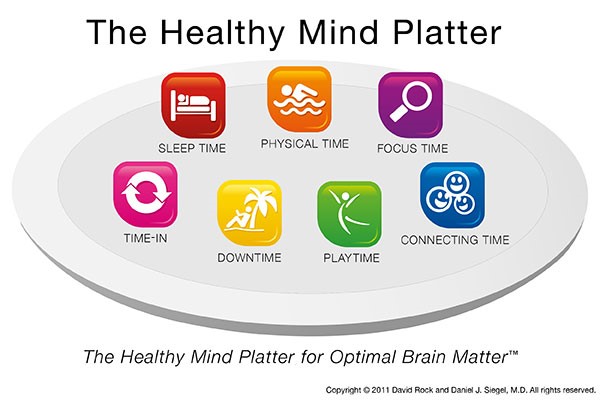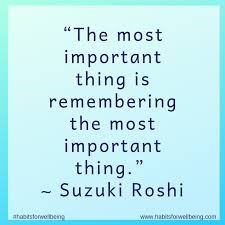
I put out the call to members of our team for their insights into how to manage your mental health during an unprecedented change in everyday life, that we are seeing now because of the Coronavirus. Nicola, Maureen and Vanessa answered the call. This time it’s Zoe stepping up to the plate with an article on coping with uncertainty and juggling roles. Please welcome Zoe to the blog!🙂
Corona – riding the wave and juggling roles
Hello out there,
How are you managing in this unexpected time of restriction and uncertainty? If you’re riding an emotional rollercoaster or struggling with motivation and perspective, please know you are not alone.
The heady days of freedom in February seem kind of surreal right now, the year we’d anticipated has transformed before our eyes…
Riding the wave of Uncertainty
If you’d been gearing up for Semester 1 of 2020 with glossy goals, tactical timetables and a limitless social calendar, it’s totally understandable to feel knocked sideways. It’s also normal to spend some time grieving the plans you had.
In other parts of your world, your social and family circles, employment, clubs/hobbies/sports/faith groups, even accommodation have likely changed drastically for you as well. It’s a lot to come to terms with.
Lately I’ve been reminded of this quote by Buddha (which I can’t recall exactly, as it’s been a long time since we last caught up)…
“Suffering is the gap between how things are,
and how we expect them to be.”
It hurts when things don’t go to plan. In fact, the more we wanted something to be a certain way, the more it hurts when it isn’t. And the more we’re used to life going to plan, the more it hurts and shocks us when it doesn’t. We humans mostly like predictability, and work hard for it! Even when we do seek out novelty or change, we usually like to be in the driving seat of that too.
If you are prone to shaming or dismissing yourself to “get over it”, or feel that pressure from others around you, it may be very timely to start trying more self-compassionate ways of responding to your own legitimate suffering. The simple act of giving yourself a hug (yes – this is still allowed under social distancing when I last checked), or some kind, encouraging words said in your head or out loud can make a significant difference over time. Imagining how someone you love would treat you is a pretty good way to get ideas for how to be kind to yourself. It may sound corny or hippy, but the research is pretty clear that compassion helps our recovery and motivation far better than shaming.
Here’s an infographic that helps explain some of the benefits of self-compassion. Kristin Neff’s website is also full of information on self-compassion and guided meditations and other exercises to help you develop this valuable skill. Gareth has written about this topic previously and has compiled some great resources if you search past blog posts.
Many of us have not known a time like this in our lives. We are all making it up as we go, day by day. It’s ok and normal to feel out of your depth or anxious during times like this. But if the anxiety becomes unrelenting or overwhelming then it might be time to reach out for some extra support. Our Counselling Service is here if you are needing this support.
While the individual situations may differ, the uncertainty is shared. And somehow that can bring some relief, to know we’re not alone in the struggle – we’re riding the wave together.
Because I love analogies (and quotes), I was thinking of the pandemic experience a bit like an intense PT session of all the muscles you’ve barely used before… on top of that, it’s a PT session you didn’t even book (?!?). Maybe it was an inspirational gift from a well-meaning friend who does marathons in their spare time…? And the outcome is painful, with lots of new aches and stiffness. Perhaps initially you’re flat on your back recovering with an ice-pack. But our muscles recover, and there’s also room for growth and new strength… perhaps a chance to reflect on what we took for granted, what matters most, and how to be creative in keeping the most important stuff in our lives.
For some of us there may be more time in our day. Maybe you’re looking for ways to continue doing things you enjoyed by finding online versions (like singing, gaming, social apps, online yoga, live streamed music concerts), or perhaps you’re exploring new interests to add some colour, play or creativity to your day (like walking in nature, puzzles, new recipes, board games, crochet, macramé). But if you’re not feeling inspired or productive, that’s ok too. There will be good days and bad days and in-between days.
You might like to check out the “Healthy Mind Platter” below to gauge how your day looks. Is there anything you could increase or decrease to help look after yourself as best you can? You can find out more about the Healthy Mind Platter by Dan Siegel here.

Juggling Roles
Some of us may find we actually have less time than before if we are also in a caring role. Carers now need to find a ‘new normal’ for studying or working from home while continuing caring duties, often with a restricted range of supports (child care, school, grandparent support, disability support) due to social distancing requirements.
If you are in this position, I certainly relate. And it is tricky. With my L-plates on, I can only suggest that you try to reduce your expectations on yourself at this time. It is impossible to do two or more roles concurrently to the level you’d usually perform them at.
Ask for extensions as needed from Topic Coordinators who are also riding this wave and will likely understand that it’s a time of struggle for many. If you work and have leave and/or can afford to reduce your hours, this could be an option to give you some extra breathing space while you juggle your other roles.
If you can, try to make a flexible(!) daily schedule for yourself and the person(s) you are caring for, so you all have some structured ‘focus time’ with regular ‘connection time’ in between. If you have others in your household assisting you with the caring role, it’s helpful to talk this through together so you can share the caring role over the day. And remember, it’s all an experiment, so keep refining it until you find something that is most workable (not perfect!).
For study or work tasks that require more concentration, it might be helpful to move these tasks to the evening if possible when your caring role reduces, and use the daytime hours for less intensive tasks or connection/fun activities.
I’d like to finish with one final quote that I’ve found helpful to use as a compass as I move through the day – assess what’s the most important thing at the time, then give it as much of your attention as possible in that moment.


